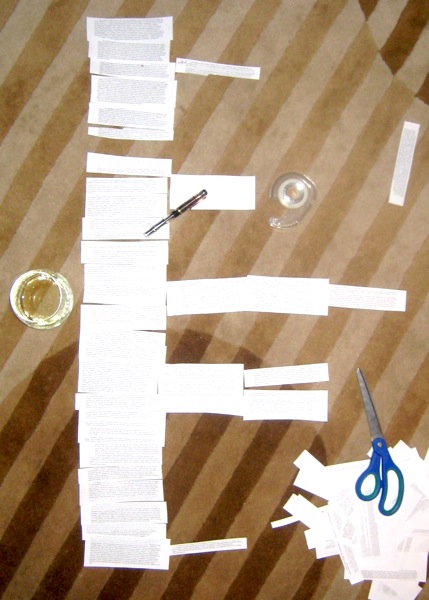*This post is part of a series about the digital tools I use to assist me in reading, writing, teaching and living.
This is perhaps the best example of finding a tool that fits your process.
Because without Scrivener, my writing would look like this:

Stage in my thought process: Two (Information Processing)
**Where I use it: **To write everything from blog posts (like this one) to longer-length book projects (and a now-complete dissertation).
What goes in it: The brilliant, articulate writing about topics extracted from catalogued, organized, sorted research in my custom Web app.
Why I chose it: I don’t write linearly, as clearly evidenced by the photo above. I write a few sentences about one topic which sparks an idea for another topic, which… (ad nauseam). Scrivener uses a corkboard-with-index-cards organizing principle. The “index cards,” which can contain as little as a sentence or as much as a chapter, can be put in any order. Move the index card, move the written material contained in the index card. Put a bunch of index cards in a folder, create a subsection. Put a bunch of subsection folders in an even higher-level folder, create a chapter. It’s like storyboarding, but for book-length writing projects.

